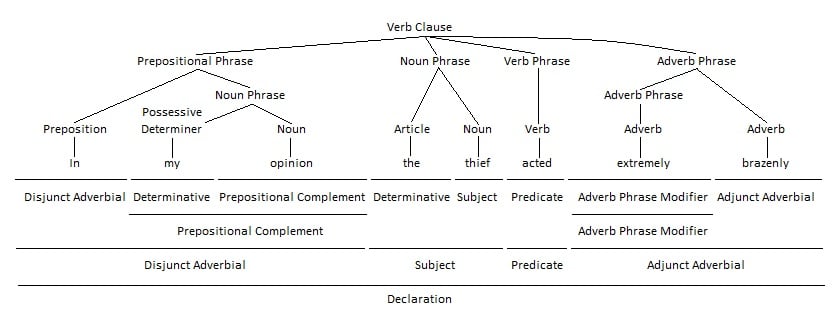Notional grammars traditionally define adverbs as words that describe verbs, adjectives, other adverbs, and clauses. An adverb phrase is a phrase that consists of an adverb plus any other adverbs functioning as adverb phrase modifiers.
In grammar, an adjunct adverbial is a word, phrase, or clause that modifies or describes an entire clause by providing additional information about time, place, manner, condition, purpose, reason, result, and concession. Adverbs and adverb phrases sometimes function as adjunct adverbials in English. Examples of adverbs and adverb phrases as adjunct adverbials include the following:
- Stubbornly, the little girl refused to eat her vegetables at dinner.
- Eagerly, my baby brother told me what he wanted for Christmas.
- James answered my call immediately.
- Quietly, the thief snuck into the vacant building.
Adverb Phrase as Adjunct Adverbial
Note that the difference between verb phrase modifiers and adjunct adverbials is often subtle. In many cases, an adverb or adverb phrase can be analyzed as either a verb phrase modifier or an adjunct adverbial without changing the meaning of the sentence.
References
Brinton, Laurel J. & Donna M. Brinton. 2010. The linguistic structure of Modern English, 2nd edn. Amsterdam: John Benjamins Publishing Company.
Hopper, Paul J. 1999. A short course in grammar. New York: W. W. Norton & Company.
Huddleston, Rodney. 1984. Introduction to the grammar of English. Cambridge: Cambridge University Press.




